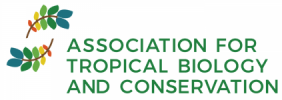Weaver ants (Oecophylla smaragdina) as natural pest control in oil palm plantations
A highly motivated postgraduate student is sought to join a project exploring how arboreal weaver ants (Oecophylla smaragdina; Malaysian common name “Kerengga”) can be used to control insect herbivore pests in oil palm plantations. Previous surveys have demonstrated that palms inhabited by these ants have less herbivore damage (Pierre & Idris, 2013 Asian Myrmecology 5: 163–176). The student will conduct experiments to explore whether ants really do reduce numbers of herbivores. They will also conduct surveys to see which factors can increase abundance and persistence of weaver ants. This will also show how variation in weaver ant abundance affects abundance of herbivorous insects, herbivory rates, and consequently palm oil yields. They will then explore the feasibility and economic viability of strategies to introduce and maintain weaver ant colonies in oil palm plantations. Finally, they will explore methods for mitigating negative impacts of weaver ants in plantations, such as symbioses with sap sucking insects, and aggressiveness of colonies towards workers in plantations. We envisage that the results of our study will allow reduction is use of pesticides, improved yields for plantations, and conservation of biodiversity in oil palm landscapes. This work also has potential to inform Malaysian government policy through incorporation into guidelines for growth of sustainable palm oil (Malaysia Sustainable Palm Oil (MSPO) standard), and also to inform the international palm oil sustainability guidelines, laid out by the Roundtable on Sustainable Palm Oil (RSPO). The position will provide the opportunity to work in collaboration with the Sabah research and development unit of the oil palm company FGV Sdn Bhd.
The student will be registered at Universiti Malaysia Sabah and will be jointly supervised by Dr Kalsum Mohd Yusah (www.kalsumyusah.com) at the Institute for Tropical Biology and Conservation (ITBC), Universiti Malaysia Sabah, and Dr Hasber Salim (School of Biological Sciences, Universiti Sains Malaysia). This research is jointly carried out by two other collaborators, Dr. Tom Fayle (www.tomfayle.com; ITBC and Institute of Entomology, Biology Centre of Czech Academy of Sciences, Czech Republic) and Assoc. Prof. Dr Homathevi Rahman (ITBC, UMS). A monthly stipend of RM 1300 will be provided for the full two-year period, which is sufficient for paying university fees (see https://www.ums.edu.my/pascav2/en/fees-and-financial/fees) and living costs. All field related expenses, including travel to field sites and accommodation in the field, will be provided. This position is open to both Malaysian and non-Malaysian applicants. The deadline for applications is 31 October 2019.
Required
- An undergraduate degree in a related topic.
- Interest in the ecology of insects.
- An A- or above in Ecology or a related subject and an overall CGPA of 3.0 or above.
- Enthusiasm for working in the field for extended periods in oil palm plantations.
- Ability to work independently.
- Some experience in the use of ecological statistical analyses.
Desirable
- Previous experience of field work.
- Research experience with insect ecology.
To apply please send a CV, contact details for two references (we will contact referees directly for shortlisted applicants), and cover letter stating qualifications, previous work and motivation to Dr Kalsum Mohd Yusah (kalsum@ums.edu.my).



